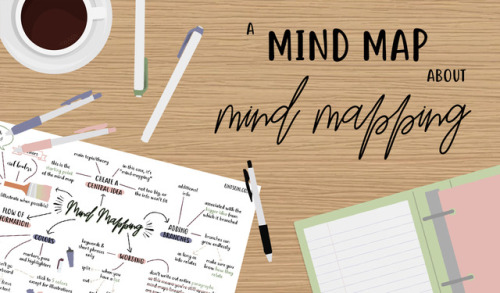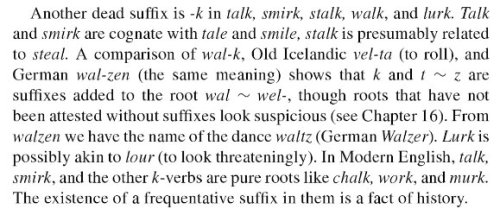熟字訓 Jukujikun
熟字訓 Jukujikun

I’ve made a post on this before, but these are words that have pronunciations that don’t line up with the readings of the kanji they use.
明日「あす」 Tomorrow (formal)
大人「おとな」 Adult
母さん「かあさん」 Mother
父さん「とうさん」Father
兄さん「にいさん」Older brother
姉さん「ねえさん」 Older sister
河原「かわら」River bed
昨日「きのう」 Yesterday
今日「きょう」Today
果物「くだもの」 Fruit
今朝「けさ」 This morning
景色「けしき」Scenery
今年「ことし」 This year
清水「しみず」Spring water (also used as a surname)
上手「じょうず」skillful
下手「へた」unskilled
七夕「たなばた」 Star Festival
一日「ついたち」 First day of the month
時計「とけい」Watch
博士「はかせ」Doctor (PHD)
二十日「はつか」Twentieth day
二十歳 「はたち」Twenty years old
一人「ひとり」 One person
二人「ふたり」 Two people
二日「ふつか」 Second day, two days
部屋「へや」Room
迷子「まいご」Lost child
真面目「まじめ」Diligent
真っ赤「まっか」Bright red
真っ青「まっさお」Deep blue
眼鏡「めがね」Glasses
八百屋「やおや」Greengrocer
可愛い 「かわいい」Cute
お土産 「おみやげ」Souvenir
小豆 「あずき」Adzuki beans
白髪 「しらが」White/grey hair
田舎 「いなか」Rural
五月雨 「さみだれ」 Early summer rain
足袋 「たび」Japanese-style socks
煙草 「たばこ」Tobacco (from dutch)
馴鹿 「となかい」Reindeer (from Ainu)
More Posts from Earthquakedeer and Others
in swedish it’s “tjuvlyssna” (tjuv-lyssna = thief-listen)
do other languages not have an equivalent of the English verb ‘to eavesdrop’?
twos germans, a portuguese & an italian I know, not only didn’t know what the word meant, but said their languages don’t have a word for it after i explained.
そうじゃないの?
そう じゃない の?
That’s not it?

thank you, wiktionary
hi! I’m trying to start up a langblr and looking for a lot more people with resources to follow so if you’re learning japanese or russian and reblog this there is a rly strong chance i’ll follow you!! please and thank you c:



A MIND MAP ABOUT MIND-MAPPING
If you know me, you’d know that I am a highly visual person. I love learning from images and layouts, and my spatial intelligence is probably my strongest type of intelligence. Because of this, I often use mind maps to study, and so do a lot of other people. However, there are people who don’t really know how to make and utilize a mind map effectively. That’s what this post is for! Here’s how you can make your mind maps more effective and thus enable you to retain more information. (P.S. you might wanna zoom in)
By no means am I an expert in mind-mapping; these are just some habits I have when making a mind map that successfully does its job of helping me remember the topics I’m studying.
If you have any questions, feel free to drop an ask!
xx jo
Japanese Music Vocabulary ・音楽についての単語
I re-watched my favorite anime, Nodame Cantabile. The feels and obsession are real, like the heaps of music-themed vocabulary I learned from it! Here you are! EVERYONE, WATCH NODAME CANTABILE, I AM SERIOUS! (のだめカンタービレ)
「楽しい音楽の時間だ」
The nice thing about music vocabulary is that there are some Kanji that keep appearing again and again, making the words easier to remember (the readings)
General Stuff
音楽・おんがく・music
弾く・ひく・to play (an instrument)
楽器・がっき・Instrument
楽譜・がくふ・sheet music
クラシック・classical music
演奏・えんそう・performance
演奏旅行・えんそうりょこう・tour
手中・しゅちゅう・concentration
奏法・そうほう・way of performing, playing
公演・こうえん・performance
Some instruments
ピアノ・piano
バイオリン・violin
オボエ・oboe
ティンパニ・tinpani
ファゴット・fagott
トランペット・trumpet
フルート・flute
ギター・guitar
チェロ・cello
コントラバス・contrabass
ビオラ・viola
ピッコロ・piccolo
ドラム・drum
マンドリン・mandolin
Compositions
作曲・さっきょく・composition (also a する verb)
楽曲・がっきょく・composition
器楽曲・きがくきょく・instrumental piece
練習曲・れんしゅうきょく・étude
交響曲・こうきょうきょく・symphony
協奏曲・きょうそうきょく・concerto (eg. ピアノ協奏曲 piano concerto)
狂奏曲・きょうそうきょく(yes, the same as in concerto)・rhapsody
曲名・きょくめい・title
Artists and Ensembles
音楽家・おんがくか・musician
奏者・そうしゃ・player, musician
指揮者・しきしゃ・conductor
デュエット・duet
室内楽・しつないがく・chamber music
オーケストラ・orchestra
Music Theory
音楽理論・おんがくりろん・music theory
器楽・きがく・instrumental
長調・ちょうちょう・major key
短調・たんちょう・minor key
和音・わおん・accord
協和音・きょうわおん・consonant accord
不協和音・ふきょうわおん・dissonant accord
小節・こぶし・measure
音符・おんぷ・note
休符・きゅうふ・rest, pause (playing)
絶対音感・ぜったいおんかん・perfect pitch
楽想・がくそう・theme
作品・さくひん・opus number (e.g. 作品18 - op. 18)
楽章・がくしょう・movement (e.g. 第1楽章 - first movement)
![[249] かみなり | kaminari | thunder](https://64.media.tumblr.com/f6ce16cf37fff9d1a85576c2a2b3ac6e/tumblr_ohd40hQDjJ1v0vbxgo1_500.png)
[249] かみなり | kaminari | thunder

random word of the day
苔 (こけ) - moss

The obsolete English -k suffix is my new favourite thing (source). It’s also the same -k that derives “hark, hearken” from “hear”.
This is maybe the most frustrating aspect of studying kanji. You start learning 山 as やま. Cool, one kanji memorized. Wait… it can also be read as さん.
Wait. All your other kanji have 2 or 4 extra readings too! Some are on'yomi. Some are kun'yomi.
Why does this have to be so complicated?!
It may seem confusing at first, but if you learn the difference between on'yomi/kun'yomi readings, where they came from, and how they work, we promise it will make learning kanji a lot easier.
Listen to this kanji-tastic episode where Kristen explains all this and more. When you’re breezing through kanji like a pro, you’ll be glad you did.
-
 plankton223 liked this · 2 years ago
plankton223 liked this · 2 years ago -
 thesoulfirerevolution liked this · 3 years ago
thesoulfirerevolution liked this · 3 years ago -
 yakisobareikilifspirt reblogged this · 3 years ago
yakisobareikilifspirt reblogged this · 3 years ago -
 yakisobareikilifspirt liked this · 3 years ago
yakisobareikilifspirt liked this · 3 years ago -
 mera-kiin liked this · 3 years ago
mera-kiin liked this · 3 years ago -
 myjapadrealif reblogged this · 3 years ago
myjapadrealif reblogged this · 3 years ago -
 sunday-aloe liked this · 3 years ago
sunday-aloe liked this · 3 years ago -
 oh-so-watermelon liked this · 3 years ago
oh-so-watermelon liked this · 3 years ago -
 ronnie999673 liked this · 3 years ago
ronnie999673 liked this · 3 years ago -
 electric-origami liked this · 3 years ago
electric-origami liked this · 3 years ago -
 purpleforest liked this · 3 years ago
purpleforest liked this · 3 years ago -
 japanessie liked this · 3 years ago
japanessie liked this · 3 years ago -
 kikokaeru liked this · 3 years ago
kikokaeru liked this · 3 years ago -
 mahounosekai reblogged this · 3 years ago
mahounosekai reblogged this · 3 years ago -
 mahounosekai liked this · 3 years ago
mahounosekai liked this · 3 years ago -
 yokenuse liked this · 3 years ago
yokenuse liked this · 3 years ago -
 tinyfarmbagelpeach liked this · 3 years ago
tinyfarmbagelpeach liked this · 3 years ago -
 rest-in-bees liked this · 3 years ago
rest-in-bees liked this · 3 years ago -
 tamago-toji liked this · 3 years ago
tamago-toji liked this · 3 years ago -
 tokyostudying reblogged this · 3 years ago
tokyostudying reblogged this · 3 years ago -
 tokyostudying liked this · 3 years ago
tokyostudying liked this · 3 years ago -
 excusememam11 liked this · 3 years ago
excusememam11 liked this · 3 years ago -
 nyaaster liked this · 3 years ago
nyaaster liked this · 3 years ago -
 iamnanda liked this · 3 years ago
iamnanda liked this · 3 years ago -
 tulipings liked this · 3 years ago
tulipings liked this · 3 years ago -
 josephinetk liked this · 3 years ago
josephinetk liked this · 3 years ago -
 darekaposts liked this · 3 years ago
darekaposts liked this · 3 years ago -
 mahounosekai reblogged this · 3 years ago
mahounosekai reblogged this · 3 years ago -
 guineapignoodles101 liked this · 3 years ago
guineapignoodles101 liked this · 3 years ago -
 bbyamhwa reblogged this · 3 years ago
bbyamhwa reblogged this · 3 years ago -
 johnnybaune liked this · 3 years ago
johnnybaune liked this · 3 years ago -
 sarido275 reblogged this · 3 years ago
sarido275 reblogged this · 3 years ago -
 sarido275 liked this · 3 years ago
sarido275 liked this · 3 years ago -
 the-childrens-era liked this · 3 years ago
the-childrens-era liked this · 3 years ago -
 adito-lang reblogged this · 3 years ago
adito-lang reblogged this · 3 years ago -
 sailears reblogged this · 3 years ago
sailears reblogged this · 3 years ago -
 sailears liked this · 3 years ago
sailears liked this · 3 years ago -
 soratobukujira liked this · 3 years ago
soratobukujira liked this · 3 years ago -
 herebeing liked this · 3 years ago
herebeing liked this · 3 years ago -
 dyke-lix liked this · 3 years ago
dyke-lix liked this · 3 years ago -
 nananananasposts liked this · 3 years ago
nananananasposts liked this · 3 years ago -
 squidnihongo reblogged this · 3 years ago
squidnihongo reblogged this · 3 years ago
Just a person learning Japanese. Self-learner. If you're also studying Japanese and want to practice with someone (and you're also very much a beginner) then message me! はじめまして! さびーなです。よとしく!
196 posts